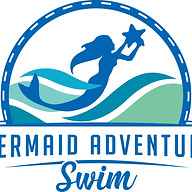I know this is off topic, but since you brought it up...
I am pretty sure (could be wrong) the first agency that offered mermaid training was NAUI, followed soon after by SSI. PADI did it after that. I don't know about other agencies.
There are evidently people who want to have training in using those mermaid tails, perhaps to get jobs doing the mermaid shows in aquariums. If people want such a service, what is wrong with someone providing it? By "money-grubbing," are you saying that the instruction should be provided free of charge? Do you resent the fact that instructors are paid for the work they do?
I went to the hardware store recently to replace one of my power tools. Can you believe it? The money grubbers wanted me to pay for it!
Today's scuba industry reminds me a great deal of the brilliant movie
Glengarry Glen Ross, based upon a play of the same name, about of a bunch of flailing, foul-mouthed real estate salesmen, desperate to keep their jobs, selling "rolling land" in Florida, and forced to adhere, under 'pain of death," to their corporate mantra of "A.B.C" -- "always be closing!" -- exemplified most recently, by my niece, just attempting to pick up a prescription mask and a neoprene snorkel keeper, while the cashier flashed his veneers and flogged an upcoming trip to Barbados.
"Are you done?" I asked the kid, and he brusquely mentioned something about currently working with a customer; that he would eventually get to me; and would not quit his scripted spiel on live-aboard arrangements until I actually purchased her gear.
Strangely enough, he made no mention of the Lesser Antilles to me.
Some years back, I attended a DEMA show with a dealer friend of mine, who also could not believe how bloated, expensive and cynical the industry had become and showed me a listing for some marketing seminar, whose title I cannot recall; but the gist was geared toward LDS efforts at "up-selling."
When I first began diving, at the "Y", classes were "one and done," or "
two and done," and that was it. No one was attempting to sell us "gold," "platinum," and "silver," gear sets, which cost more than my car did in college; nor were we ever steered in one brand direction or another; and a kid with a crap Summer job could cobble together a kit (I certainly did). I didn't take any additional class (NAUI) until college -- and then, only to get further access to local boats, and, well, girls.
There had been an old Foremost plastic milk crate at the "Y" with a number of banged-up regulator brands -- Scubapro, Poseidon, Aqua-Lung, Dacor, among them -- which we regularly switched and were encouraged to experiment with -- along with being provided a short list of local dive shops to purchase masks, snorkels, etc. No further marketing was ever involved.
That analogy of equating a scuba class "specialty" with a power tool is a bit weak, since that Makita drill, whatever, that you recently replaced, is material; useful, for years to come -- and a scuba agency vanity patch for garbage collection most certainly is not . . .

 www.mermaidadventureswim.com
www.mermaidadventureswim.com

 www.mermaidadventureswim.com
www.mermaidadventureswim.com




